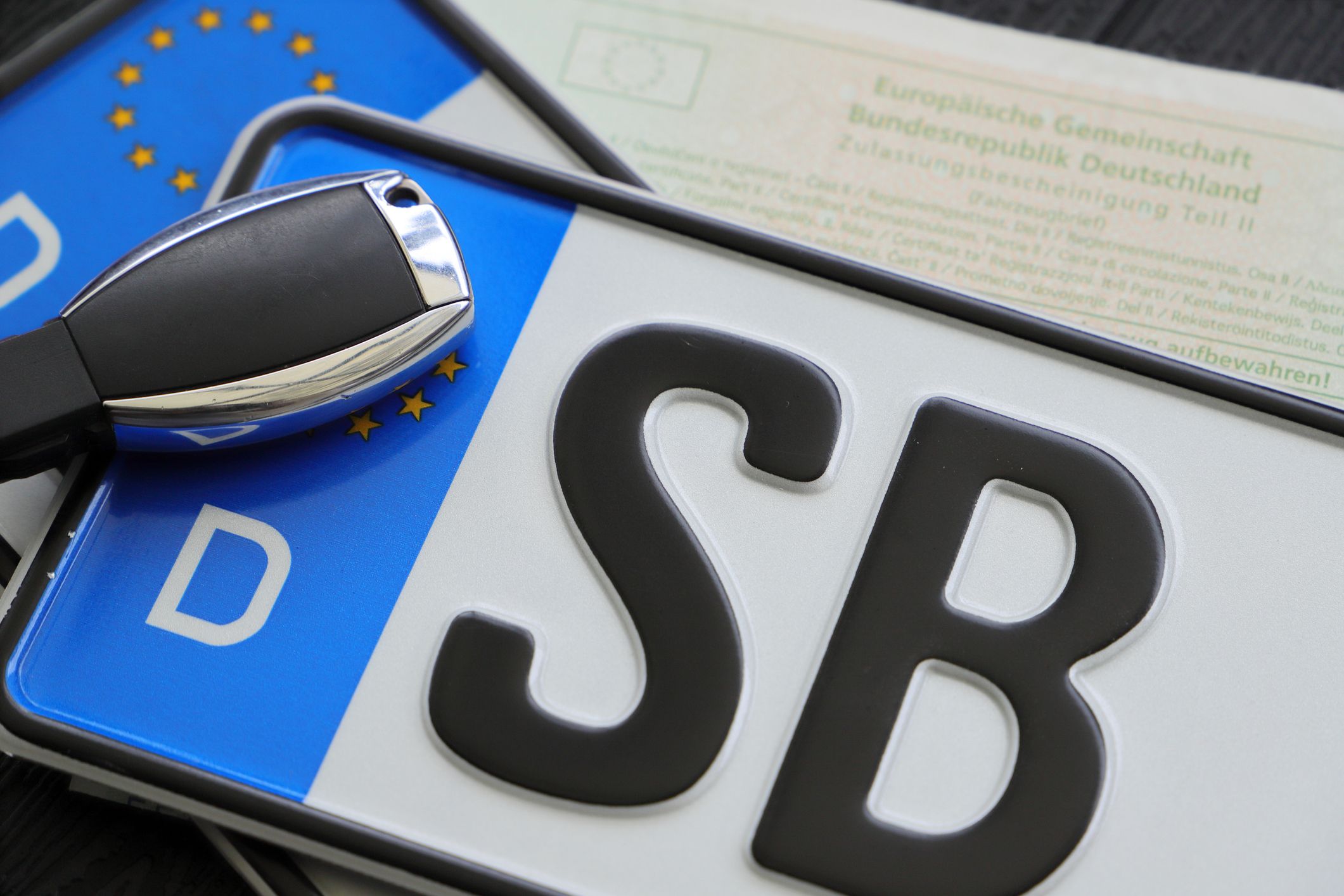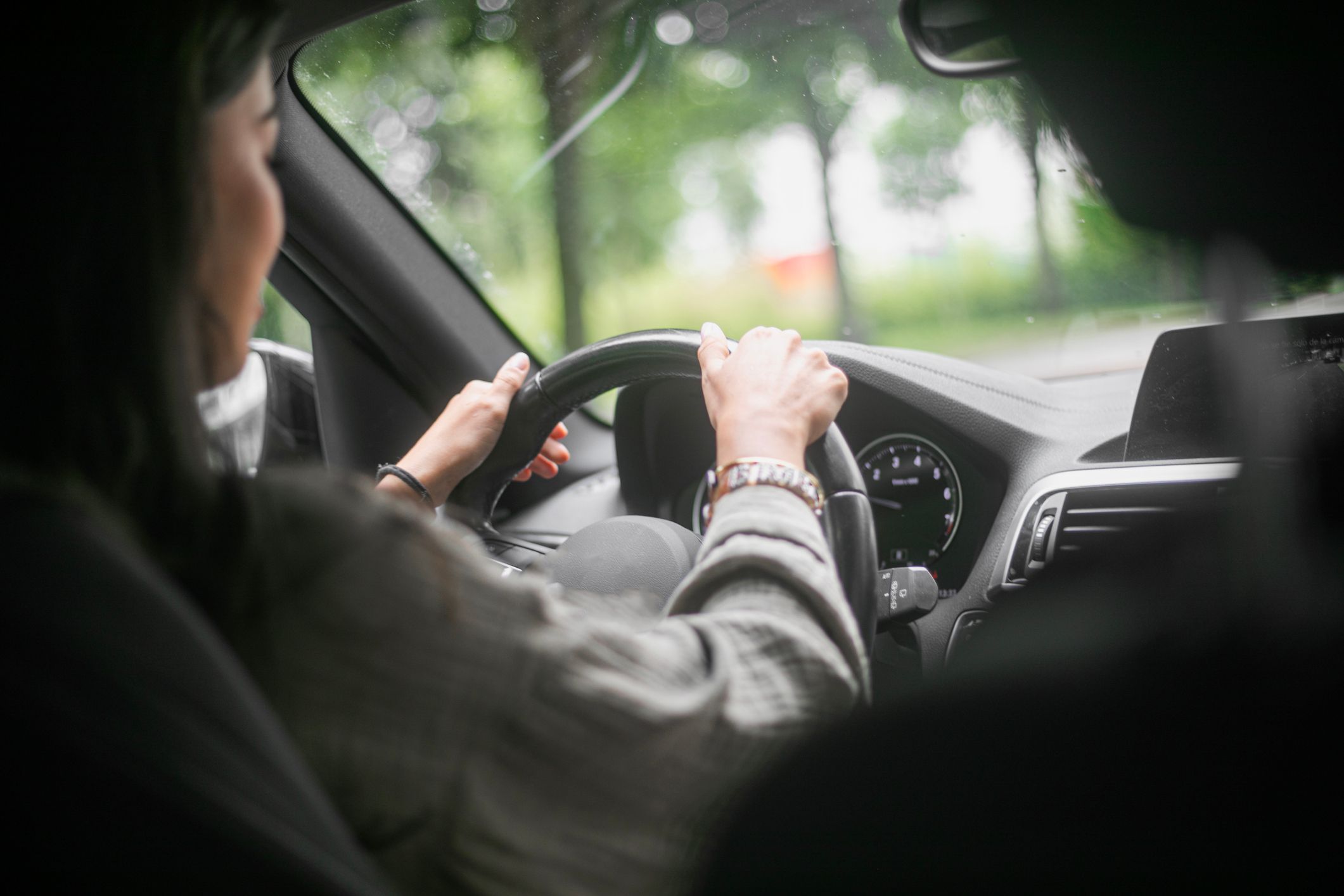Car Registration Check: Why It’s Essential When Buying a Used Car
A car's registration number is like its passport—it holds all the key details about its past. Before you commit to buying a used car, running a quick registration check is one of the smartest things you can do. This guide will walk you through what a reg check shows, why it's so important, and how it can help you avoid any nasty surprises down the road.
The Cazoo editorial team
Published on 28 August 2025 | 3 mins read

Buying a used car can feel like an exciting adventure. Whether you’re after your first car or upgrading to something sleeker, it’s crucial to make sure the vehicle you’re buying is exactly what it claims to be. A car registration check is one of the simplest yet most powerful steps you can take to protect yourself. It offers insights into the car's past and ensures you’re not caught out by hidden surprises later.
Here’s a clear guide to help you understand what a car registration check involves, why it’s essential, and how to perform one like a pro.
Why Does Checking a Car’s History Matter?
Avoiding Costly Surprises
Nobody wants to buy a car only to discover it’s been written off in the past or comes with outstanding finance. A Car Registration Check
: Why It’s Essential When Buying a Used Car
Buying a used car can feel like an exciting adventure. Whether you’re after your first car or upgrading to something sleeker, it’s crucial to make sure the vehicle you’re buying is exactly what it claims to be. A car registration check is one of the simplest yet most powerful steps you can take to protect yourself. It offers insights into the car's past and ensures you’re not caught out by hidden surprises later.
Here’s a clear guide to help you understand what a car registration check involves, why it’s essential, and how to perform one like a pro flags these issues early so you can decide whether the vehicle is worth pursuing.
Ensuring Roadworthiness
If a car's previous MOT status shows consistent failures or skipped tests, it may not be fit for the road. Knowing a car’s test history gives you confidence that it’s safe to drive—or a heads-up to keep looking.
Confirming Authenticity
It’s easier to misrepresent a car than you’d think. A history check ensures details like the car’s make, model, and registration plates match what’s advertised.

What Does a Basic Car Registration Check
: Why It’s Essential When Buying a Used Car
Buying a used car can feel like an exciting adventure. Whether you’re after your first car or upgrading to something sleeker, it’s crucial to make sure the vehicle you’re buying is exactly what it claims to be. A car registration check is one of the simplest yet most powerful steps you can take to protect yourself. It offers insights into the car's past and ensures you’re not caught out by hidden surprises later.
Here’s a clear guide to help you understand what a car registration check involves, why it’s essential, and how to perform one like a pro Include?
With free tools such as the DVLA’s vehicle information platform, you can run a quick reg check for basic details. Free checks typically include:
- The car’s make and model
- Tax and MOT expiry dates
- Colour and fuel type
- Year of registration
While useful, these checks may not go far enough. That’s where paid checks come in, delivering a more comprehensive view of the car's history.
What Extras Can a Paid History Check Include?
Paid history checks go the extra mile, offering richer insights into the car’s true condition and status. For around £10-£20, you can uncover:
- Outstanding finance agreements
- Whether the car has been previously written off by insurers
- Reports of theft
- Mileage inconsistencies
- Changes in number plates or vehicle colour
- Import/export history
HPI checks are considered the gold standard. Not only do they provide meticulous detail, but they also alert you to serious fraud risks like cloned or clocked vehicles.

How to Carry Out a Comprehensive Car Registration Check
: Why It’s Essential When Buying a Used Car
Buying a used car can feel like an exciting adventure. Whether you’re after your first car or upgrading to something sleeker, it’s crucial to make sure the vehicle you’re buying is exactly what it claims to be. A car registration check is one of the simplest yet most powerful steps you can take to protect yourself. It offers insights into the car's past and ensures you’re not caught out by hidden surprises later.
Here’s a clear guide to help you understand what a car registration check involves, why it’s essential, and how to perform one like a pro
Step 1. Start with Free Government Tools
Begin by visiting Gov.uk’s vehicle check service to gather basic tax, MOT, and vehicle specs. This simple check gives you an initial look at whether the car matches the seller's description.
Step 2. Get the VIN and Logbook Details
When meeting the seller, compare the VIN (Vehicle Identification Number) to the documents provided. The VIN should match the car’s logbook (V5C) and what’s recorded in your online check. If the numbers don’t align, walk away.
Step 3. Run a Paid History Check
For extra reassurance, use reputable services like HPI or similar platforms. They tap into databases such as the National Mileage Register to verify the car’s mileage and check for red flags like outstanding loans or theft reports.
Step 4. Check for Safety Recalls
Use the DVLA recall checker to see if the car’s manufacturer has issued recalls for safety-related issues.
Tips for Verifying Documents and Seller Info
Check the Logbook (V5C)
Ask to see the original V5C registration document. Ensure the serial number is valid and that the details match what you’ve found during your check. Watch for signs of tampering or counterfeit documents, as these could indicate deeper issues.
Inspect the Service History
A thick maintenance folder shows the car has been cared for, but even then, watch for gaps in servicing or inconsistent mileage records. Verify receipts, dates, and garage names where possible.
The Risks of Skipping a Car Registration Check
: Why It’s Essential When Buying a Used Car
Buying a used car can feel like an exciting adventure. Whether you’re after your first car or upgrading to something sleeker, it’s crucial to make sure the vehicle you’re buying is exactly what it claims to be. A car registration check is one of the simplest yet most powerful steps you can take to protect yourself. It offers insights into the car's past and ensures you’re not caught out by hidden surprises later.
Here’s a clear guide to help you understand what a car registration check involves, why it’s essential, and how to perform one like a pro
Without a proper check, you risk buying a car with serious, hidden problems. These issues could include:
- Outstanding Loans: If the vehicle is tied to finance, it technically belongs to the lender—not the seller.
- Clocked Mileage: Manipulated odometers inflate car values falsely.
- Past Damage: Insurance write-offs might seem fine but could hide costly structural issues.
Doing your due diligence not only saves you money but also protects you from legal headaches like unknowingly buying a stolen car.
By running a simple check, using your intuition, and investing in a paid report if necessary, you’ll be armed with all the information you need to buy confidently.